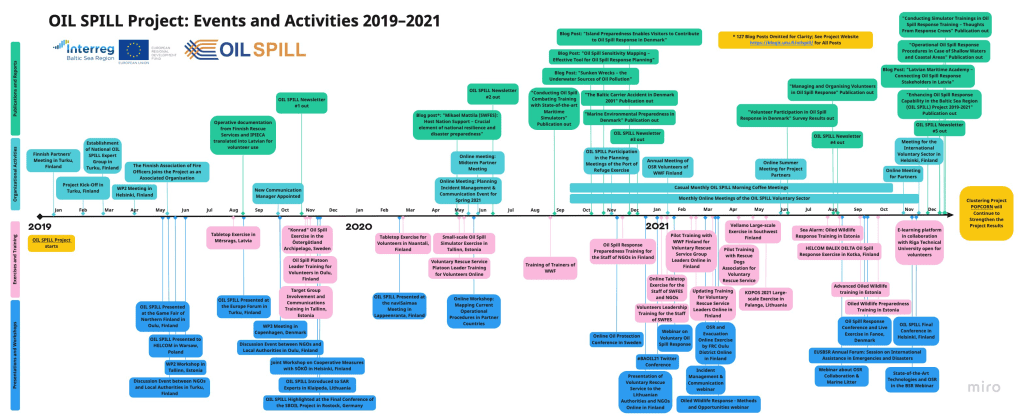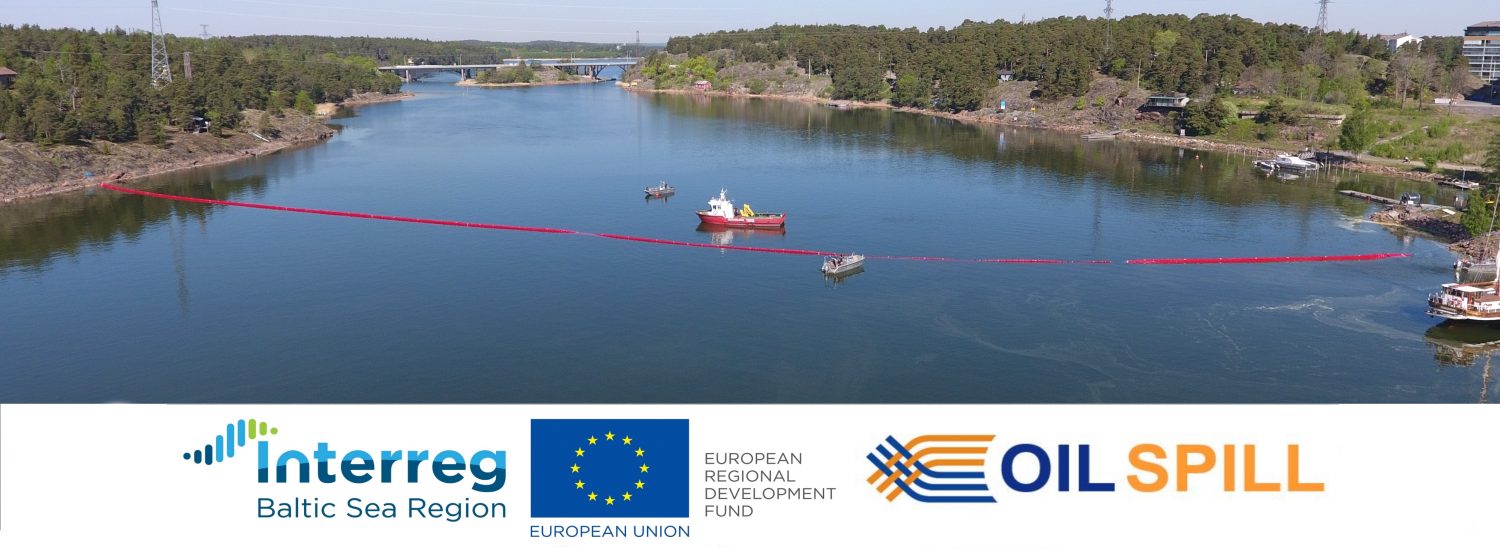Looking Back − and Forward: OIL SPILL Timeline and POPCORN OSR Webinars

Combatting oil spills in shallow waters and coastal areas is a complicated and arduous operation and the division of tasks often unclear. In addition, the potential volunteers have in supporting authorities is not widely acknowledged. The OIL SPILL project strengthened the oil spill response (OSR) capability in the Baltic Sea Region (BSR) by alleviating these challenges and promoting cooperation in and between all sectors concerned.
OIL SPILL brought together several key actors – ministries, authorities, non-governmental organizations, the petrochemical industry, and experienced knowledge partners – from six BSR countries. The new networks and increased regional, cross-regional, and cross-sectorial interaction that were created during OIL SPILL are also one of its most significant and lasting outcomes.
The recurring live and online meetings, webinars and conferences, news posts, and frequent internal and external communication increased the understanding about the various actors, experiences, and procedures in partnering countries and organizations. The different operational procedures and best practices across the Baltic Sea were also mapped and reported. This publication is useful for the cross-border harmonization of OSR activities in the region.
OIL SPILL succeeded in promoting and supporting volunteer participation in coastal OSR. The achievements vary by country and are notable in each. For instance, in Lithuania, the incorporation of volunteers in OSR was initiated during the project. In Denmark, the system to recruit spontaneous volunteers was advanced, and, in Latvia, the pool of volunteers grew significantly. The training of volunteers was improved in the collaborating countries. Another significant step towards optimizing the volunteer contribution was establishing and practicing cooperation with authorities.
Discussion sessions and tabletop and live exercises enabled practicing, testing, and learning how to improve the existing procedures and collaboration – not only between different sectors but also within organizations and in international settings (see e.g., here). In addition, utilizing maritime simulators as part of OSR training was assessed. The effective sharing of experiences ensured that OIL SPILL reached its results in a transnational setting (see e.g., here and here). Thanks to the composition of the consortium, the partners had excellent resources for communicating project results both within their own organizations and towards the relevant target groups in the BSR and beyond.
A clustering project POPCORN – Preventing Oil and Plastics Contamination of Ocean Regions of the North – is a follow-up of OIL SPILL and three other projects that focused on preventing maritime pollution. POPCORN strengthens the project results by disseminating them further through webinars and podcasts. In May 2022, two POPCORN webinars focus on OSR.

Leave a Reply